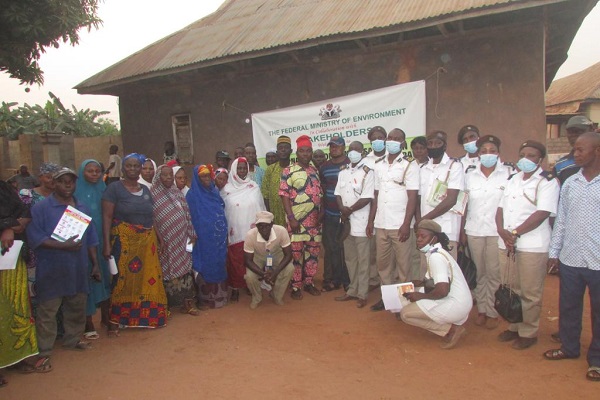
The Minister of State for Environment, Barr. Sharon Ikeazor, has revealed that the Federal Government is collaborating with relevant agencies to curtail the outbreak of perennial Lassa fever in Nigeria.
Speaking during a stakeholders’ meeting on national environmental sanitation response to Lassa fever and cholera outbreak prevention at the weekend in Kogi State, she revealed that the ministry is strategically collaborating with the Nigeria Centre for Disease Control (NCDC), World Health Organisation (WHO) and other stakeholders to carry out activities to prevent and contain the outbreak in the country.
According to her, Nigeria is currently experiencing an increasing number of reported Lassa fever cases across the country.
The most recent situation report from the Nigeria Centre for Disease Control (NCDC) of 16th January 2022 indicated 96 confirmed cases and 11 deaths from 3rd to January 16, 2022 in 27 local government areas across 11 states – Bauchi, Edo, Ondo, Benue, Taraba, Kaduna, Plateau, Kogi, Cross River, Ebonyi and Oyo, in addition to the 510 confirmed cases and 102 deaths that occurred between January 2021 and January 2, 2022.
Ikeazor revealed that before the recent outbreak, the ministry took proactive measures to improve the overall sanitation and hygiene situation in the country by establishing sanitation desks in all the 36 states of the Federation and the FCT to ensure proper monitoring and proactive measures on environmental health issues and concerns.
“This is in addition to the setting up of environmental health surveillance systems designed to strengthen cooperation between the states and Federal Government on environmental health and sanitation issues which aid information/data gathering and sharing between the Federal, state and local governments.
“They are also involved in prevention and containment activities including surveillance/monitoring and reporting of Lassa fever cases and other environmental determinant diseases to the Federal Ministry of Environment headquarters. The sanitation desks are being replicated in all the 774 LGAs in the country,” she explained.
The minister stated that environmental health officers in the ministry, in collaboration with the sanitation desks in the states and local government environmental health officers, are currently in the field implementing environmental sanitation response activities in areas affected by the fever in the states.

“As a ministry, we remain committed to our mandate of pest and vector control in Nigeria. To this end, we are entrenching sustainable programmes focusing on eliminating and reducing breeding avenues for disease vectors which involve fostering collaboration with relevant stakeholders.
“Furthermore, we shall continue to develop the capacity of environmental health practitioners in the federal, state and local government jurisdictions. State ministries of environment are hereby enjoined to develop comprehensive Lassa fever prevention programmes that will include rodent infestation survey and deratisation,” she added.
Ikeazor assured the general public of the ministry’s commitment to ensuring that the environment remains clean, healthy and safe for all.
A statement by the ministry’s director of press, Saghir el Mohammed, said the Lassa fever virus is transmitted by rodents (rats) which can be found in homes, motor parks, offices, places of worship etc. This contributes largely to the risk of spread that occurs in Nigeria and other countries with similar ecological factors.
It, therefore, called on members of the public to keep their surroundings clean, keep food away from rodents, store grains and other foodstuff in rodent-proof containers and cook all foods thoroughly before consumption.
The statement added that the minister also advised residents to block rat hideouts, carry out deratisation, put an end to the practice of eating rats, dry farm produce in hygienic manners by refraining from drying crops on the ground where rodents could freely run through; as Lassa fever is often associated with poor sanitary and hygiene practices with cases being recorded all year.



